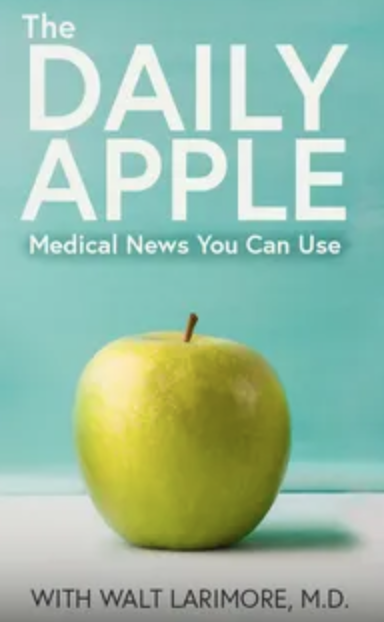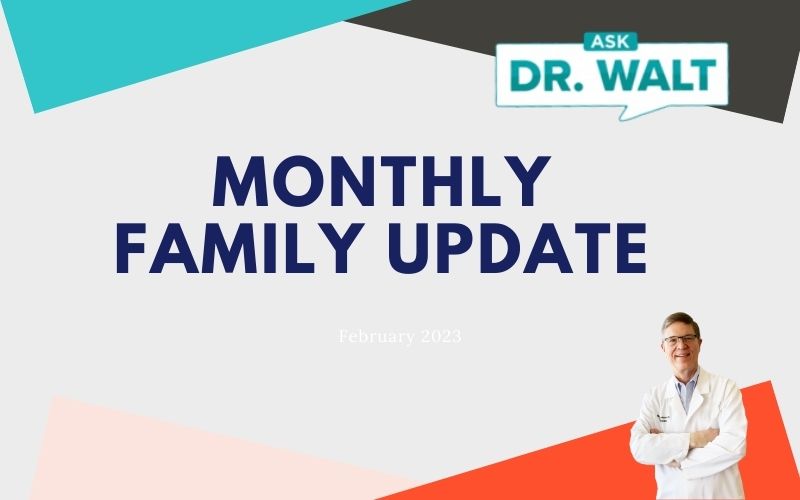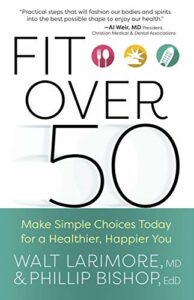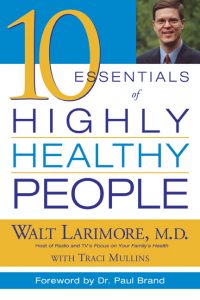
Apple a Day 009 – You are what you eat—sugar can increase dementia and Alzheimer’s risk
October 27, 2023
Monthly Family Update – November 2023
November 1, 2023More and more studies are revealing a remarkable connection between a person’s spiritual health and their mental or emotional health. Today we’ll be talking to a physician and professor who may be the most published researcher in the world on this topic. Spiritual and mental health on today’s edition of Ask Dr. Walt.
From 2021-2022, I was honored to host a TV show on LiftableTV, “Ask Dr. Walt.”
More and more studies are revealing a remarkable connection between a person’s spiritual health and their mental or emotional health. Today we’ll be talking to a physician and professor who may be the most published researcher in the world on this topic. Spiritual and mental health on today’s edition of Ask Dr. Walt.
You can click below to watch a video of the show, or I’ve put the show transcript at the end of the blog if you’d prefer.
CLICK TO LEARN MORE about FIT OVER 50 or 10 ESSENTIALS OF HIGHLY HEALTHY PEOPLE
Disclaimer: The Ask Dr. Walt show is designed for entertainment purposes to give information on various medical conditions, treatments, and procedures for your personal knowledge and to help you be a more informed consumer of medical and health services.
SHOW TRANSCRIPT
SHOW 25
The Impact of Spiritual Health on Mental Health
GUEST INTERVIEW
Harold G. Koenig, MD
TEASE:
More and more studies are revealing a remarkable connection between a person’s spiritual health and their mental or emotional health. Today we’ll be talking to a physician and professor who may be the most published researcher in the world on this topic. Spiritual and mental health on today’s edition of Ask Dr. Walt.
OPEN:
Hi, everyone. I’m family physician Dr. Walt Larimore. Thanks for joining me for a topic of importance to all of us, the emotional and mental health of ourselves and our families. I think it makes intuitive sense to most people that our spirituality or religiousness can impact our emotional or mental health. But is that impact a positive one or a negative one or a mixed bag?
To help us answer these questions is someone you’ve met before on this program, Harold G. Koenig, MD. Dr. Koenig is the Director of the Center for Spirituality, Theology, and Health at the Duke University Medical Center where he also serves as a Professor of Psychiatry & Behavioral Sciences and an Associate Professor of Medicine. Dr. Koenig is uniquely qualified to help us with today’s program due to his training and expertise in family medicine, psychiatry, and biostatistics. He’s also the lead author of Oxford University’s Handbook of Religion and Health, which he authored with two Harvard professors. Finally, we both were trained at Duke.
- Koenig, welcome back to “Ask Dr. Walt.”
- For those who missed our first program together on the connection between spiritual health and general health, how’d you first get interested in the faith-health connection?
- You’ve systematically reviewed the original data-based quantitative research published in peer-reviewed journals on the topic of religion, spirituality, and health from 1872 until today. Tell us about the 19thcentury literature and how it’s progressed up to today.
- In your reviews and research on religion/spirituality and health, you differentiate between religion and spirituality. What’s the difference and why’s it important?
- You’ve written that approximately 80 percent of the research on religion/spirituality and health involves studies on mental health. You say that’s not a surprise. Why not?
- As you’ve reviewed the studies on the connection of religion/spirituality and mental health, you write that you’ve found with both positive and negative mental health outcomes. What are some of the positive outcomes?
- You have written that in the overwhelming majority of studies, people report that religion/spirituality help them cope with adversity. In what ways?
- And what are the potential negative outcomes of religion/spirituality?
- I teach my residents at the In His Image Family Medicine Residency in Tulsa, Oklahoma, to take a spiritual assessment on every patient that they admit to the hospital. For those that are religious, I teach them to explore what I call the “LAP” factors. The acrostic “LAP” stands for love, abandonment, or punishment. In other words, does the patient consider their disease of disorder to be caused by a God who does not love them, or who has abandoned them, or who is punishing them. And we’ve found about 40 percent of our religious patients in the hospital are dealing with this religious struggle. And my understanding is that religious struggle can dramatically affect mental health and even physical healing. What’s your take on that?
SAY GOOD-BYE TO DR. KOENIG:
Before we close the show, I want to tell you about a couple of books I’ve written on whole-person health: Fit over 50: Make Simple Choices for a Healthier, Happier You and 10 Essentials of Happy, Healthy People: Becoming and staying highly healthy. You can find them at DrWalt.com. Just click on the tab that says books. Also, at DrWalt.com you can sign up for my daily “Medical News You Can Use” blog and my twice daily Biblical devotion, “Morning Glory, Evening Grace.” Finally, if you have comments or questions drop me a line at DrWalt@Liftable.TV. That’s DrWalt@Liftable.TV.
So, until our next visit, “Dear friend, I pray that you may enjoy good health and that all may go well with you, even as your soul is getting along well.” I’m Dr. Walt Larimore and I look forward to seeing you for my next episode of “Ask Dr. Walt.”
Disclaimer: The “Ask Dr. Walt” show is designed for entertainment purposes to give information on various medical conditions, treatments, and procedures for your personal knowledge and to help you be a more informed consumer of medical and health services.
© Copyright WLL, INC. 2023. This blog provides healthcare tips and advice that you can trust about a wide variety of general health information only and is not intended to be a substitute for professional medical advice, diagnosis, or treatment from your regular physician. If you are concerned about your health, take what you learn from this blog and meet with your personal doctor to discuss your concerns.








